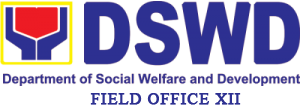Koronadal City, SOUTH COTABATO—Department of Social Welfare and Development (DSWD) Secretary Corazon “Dinky” Juliano-Soliman paid visit community projects in Southern Philippines recently and lauded the contributions of volunteers and various stakeholders as part of collaborative efforts of the agency to reduce poverty in the countryside.
Soliman visited newly completed foreign-funded projects in Isulan, Sultan Kudarat, constructed through one of the three poverty reduction programs of the agency, Kapit-Bisig Laban sa Kahirapan-Comprehensive and Integrated Delivery of Social Services more widely known as Kalahi-CIDSS.
“Kung hindi nakiisa ang lokal na pamahalaan at mga community volunteers hindi tayo makapagpatayo ng mga proyektong ito,” (If the local government unit and the volunteers did not work together, we would not have been able to construct these projects), Soliman said.
As a Project that uses the community-driven development (CDD) strategy, Kalahi-CIDSS builds up the capacities of ordinary citizens so they themselves can contribute to local development. Residents volunteering in Kalahi-CIDSS work closely together with their local government units to analyze and address local issues that impede their development through participatory decision-making
The DSWD head appreciated the contributions of community volunteers in charting local development directions, playing direct role in implementing key project activities at the community and municipal level.
First water purifying project
Soliman interacted with the volunteers and beneficiaries of Barangay D. Lotilla during her visit. Residents in the village had to endure using discolored, smelly water because they had no other source of potable water.
It also monitored 15 cases of amoebiasis, diarrhea, and other water-borne diseases.
Through series of consultations with Kalahi-CIDSS, the villagers identified the need for potable water as their most pressing concern. As such, they proposed the construction of a water purifying station, which was subsequently approved.
“Our community project aims not just to provide access to potable water service to all households of the target sitios, but also to provide entrepreneurial opportunities and increase the local revenues,” Ricky Fuentespina, one of the Kalahi-CIDSS volunteers, said.
In less than three months, the villagers’ long awaited project started to unfold before their eyes.
The community project cost P846, 638.00, of which, P144, 871.00 came from the local community counterpart contribution, in cash and in-kind. The remaining P701, 767.00 came from the DSWD grant to Barangay D. Lotilla.
Meanwhile, DSWD Regional Director Bai Zorahayda said that the community project will benefit hundereds of residents in D. Lotilla and neighboring barangays.
“The project will benefit at least 718 households, in which thus community project is the first ever and currently the only water purifying community project in the country constructed through Kalahi-CIDSS since the project started in 2003,” Taha said in a statement.
Taha added that the villagers agreed that 60% of the total project revenue will be utilized for operation and maintenance of the water purifying system. The remaining 40% will be utilized to fund social welfare and development projects. (Hilbert T. Estacion, DSWD-12)
